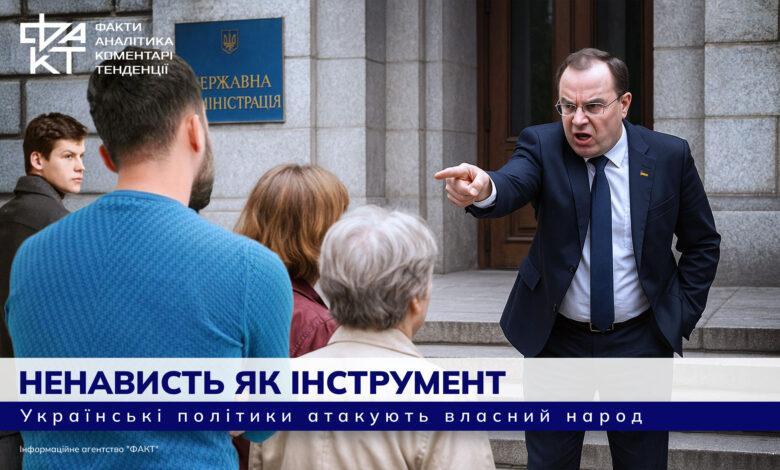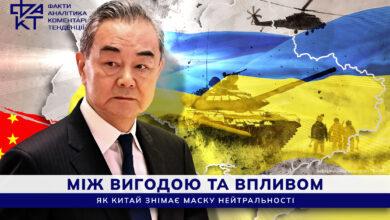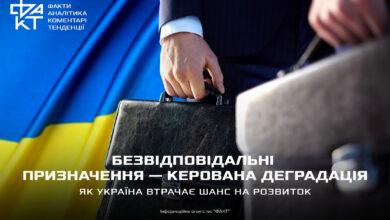Murderous rhetoric: how Ukrainian politicians turn their own citizens into enemies

The public space in Ukraine is increasingly becoming an arena of politicians’ demonstrative contempt for the society that elected them or that they are supposed to serve. Instead of restraint, responsibility and understanding of the complexity of the situation, there is aggressive rhetoric, threats, labeling of certain groups of citizens, purposeful labeling. What would have been perceived as a provocation or an excess not too long ago, today increasingly sounds like a normal tone – politicians allow themselves to openly humiliate and polarize their own society. At the same time, they do not simply express disdain for certain groups from the stands, on airwaves and social networks, but purposefully sow enmity between citizens, strengthen division, impose models of opposition between “necessary” and “extra”, “own” and “excluded”. Another similar statement this time was made by a member of the Kharkiv City Council, who openly called for the shooting of Ukrainians who avoid mobilization. This statement is not an exception, it only exposed a trend. Why is this happening and what is leading to a country that pays the price for survival every day?
A military serviceman on the experience of mobilization in Finland and the comment of a member of the Kharkiv City Council
In his Facebook post, Leonid Maslov, platoon commander of the 92nd Separate Assault Brigade named after Ivan Sirko, gave a historical example of general mobilization in Finland during World War II, focusing on its scale, discipline and public attitude towards evasion of military duty. His post was analytical in nature and contained contextual clarifications, which were likely to become a subject for reflection in the current Ukrainian society, which is experiencing a protracted war and a complex debate about the justice of the mobilization policy.
Maslov began with a general historical background: in December 1939, the USSR attacked Finland without declaring war, starting the Winter War. After a short peace, already in 1941, Finland entered the war again – this time on the side of Germany against the USSR. During this period, according to his data, the country with a population of about 3.5 million was able to mobilize more than 300 thousand people. The military man emphasized that this became possible thanks to the already clearly regulated mechanism of general military duty at that time: men between the ages of 17 and 60 were subject to conscription, conscription lasted up to 550 days, and mobilization covered even the most remote villages.
He described in detail who in Finland could be exempted from service: exceptions applied only to people with severe disabilities or serious illnesses, confirmed by a medical commission, as well as certain categories of workers in the strategic infrastructure – energy, communications, medicine, and farmers who fed entire regions. Even these exceptions often involved support services — logistics, transport, sanitary support.
Maslov paid special attention to the issue of responsibility for evading mobilization. In Finland at that time, it was perceived not only as a criminal offense, but also as a deep moral decline. Evaders were tried quickly, often immediately after the verdict they ended up in the penal sections. Repeated evasion was punishable by up to five years in prison. The social attitude towards such persons was extremely harsh: they were called “rintamakarkuri” (deserter), even if they had not yet been to the front. In rural communities, evaders could be isolated, deprived of work, help or even basic support, and their families became objects of condemnation.
Maslov also noted that during the war, field martial law operated, and in some cases, evaders or deserters could be executed by a military tribunal. According to him, the archives recorded several dozen such cases during the Winter War and the Continuation War. At the same time, he emphasized: even in such conditions, procedures, tribunals, medical commissions, and mobilization bureaus operated in Finland.
In the end, Maslov formulated the main thesis: Finland became an example of the mobilization of a democratic nation, which, despite the fear and threat from the great empire, was able to provide effective defense. In his opinion, the concept of duty in that society was higher than fear, and evasion caused social rejection – but even then the state did not abandon clear legal procedures.
Under Leonid Maslov’s post, Kharkiv City Council deputy from “European Solidarity”, great-great-granddaughter of the famous historian Dmytro Bagaliy, Iryna Honcharova-Bagalii, left a comment that immediately caused a flurry of outrage among Ukrainians. In her comment she wrote:
“Shooting a dozen dodgers for show is an attractive idea.”
It was not an excuse or a mistake, but a direct call that readers interpreted unambiguously: to shoot Ukrainian citizens who do not want to fight. The reaction was not delayed. Social media users showered Goncharova-Bagalia with angry comments: she was accused of inciting murder, hate speech, and dehumanization of Ukrainian citizens. Her words were called “rock bottom” and “an example of how the authorities finally lost their sense of limits.”
“As I understand it, the deputy is calling to kill people? Is this the bottom or does it get worse?” – they wrote under her comment. Others added: “And the lists will be compiled only among ordinary people, is it possible to add someone from the “neighborhood” for publicity?”. There were also sarcastic comments: they said that now it is enough to take a screenshot, and this is enough to apply for political asylum in the USA or Europe, referring to the deputy herself as the source of the threat.
One of the users addressed her directly:
“I’m sorry, deputy. I am currently applying for political protection in Europe. Can I, during this time, give your contacts in court so that you can confirm that the authorities of Ukraine are calling for the shooting of Ukrainians? Please confirm how you will be contacted. This will help you a lot, because such people who hate you will receive protection and will never again prevent you from building a country of first-class Ukrainians.”
Goncharova-Bagaliy tried to clarify her position, stating that deputies serve on a general basis, except for people’s deputies, and their relatives are not provided with a postponement. But instead of calming the debate, it only added fuel to the fire. In response, she was offered to compile a list of a dozen colleagues and their relatives who are evading service — “in particular, with fake disability certificates” — and send them to be shot first. There was even an ironic proposal to arrange a live broadcast of such an execution in a telethon.
“Ma’am, after this you are guaranteed the presidential seat,” – emphasized the user.
The resonance was so deep that the post with the comment instantly spread in other social networks and Telegram channels. In the political sphere, this incident testified to a dangerous trend: more and more representatives of the authorities, not only deputies, but also politicians of various levels, are resorting to frankly aggressive rhetoric, which not only polarizes Ukrainian society, but also creates an atmosphere of stratification according to the principle of “worthy – unworthy”, “warriors – traitors”, “necessary – superfluous”. Such statements leave no room for dialogue, understanding of the circumstances or the complexity of an individual’s choice. They blur the line between moral pressure and the rhetoric of coercion, and sometimes, as in the case of the call to execution, they cross a dangerous line beyond which the politician begins to speak to the people as an enemy.
How the rhetoric of Ukrainian politicians turns into a weapon against their own citizens
The comment of Kharkiv City Council member Iryna Goncharova-Bagaliy, who actually supported the idea of shooting Ukrainian citizens for evading mobilization, was not an ordinary rhetorical error or an accidental exaggeration in the comments to the post of the military. It was a public act of approval of a punitive scenario, which does not and cannot have any legitimacy in a legal state. It is a symptom of a systemic disorder that has gone far beyond a single outrage on social networks.
The incident with the deputy’s statement opened a dangerous chasm between political cynicism and moral boundaries, which Ukrainian society somehow still maintains. This is not just an unethical comment, but a public demonstration of how far some politicians are willing to go in their brutal rhetoric, cloaked in slogans of mobilizational justice. This incident called into question both the personal adequacy of the deputy, as well as the values of the party she represents, and in general, the quality of public broadcasting in a state that is “fighting for democracy.”
The words of Goncharova-Bahalii dehumanize a whole group of people, deprive them of their subjectivity and form the image of the enemy. In this case, those who evade mobilization. There are several purposes behind such rhetoric. First, it is a convenient way to divert the attention of society. Radical statements make it possible to mask the real problems: corruption in the TCC, non-transparency of the draft, double standards and other global problems in the state. Secondly, it is an attempt to mobilize the electorate. For a part of the war-weary society, anger at the “evaders” is an emotional outlet that politicians are ready to exploit. And, thirdly, it is finding the culprits among the people (forgetting about the “elite”) – “they are guilty, they must be punished.”
This approach is not just dangerous, it is destructive. Such rhetoric divides society into “right” and “wrong”, “patriots” and “traitors”, “own and foreign”. He deeply polarizes Ukrainians precisely at the moment when maximum unity is needed. He undermines trust in the government, which suddenly appears not as an institution of justice, but as a punishing machine. And in the end, it frees the hands of radicals who may take the call literally and commit violence.
It should be emphasized that Goncharova-Bagaliy is not an ordinary blogger, she is a member of the city council, a public figure whose status implies not only freedom of speech, but also responsibility for it. Even if her words were hyperbole (which she later hinted at), in the conditions of war, such public statements have no right to ambiguity. They are read by those who have lost loved ones, those who are at the front, those who are torn between duty and fear. For them, such “hyperbole” sounds like splashing gasoline on a fire.
But this scandal showed another thing: a deep social rift between the authorities and citizens. The reaction of social networks was not only indignation at the deputy’s words, but also a cry about pain – about inequality. When a politician talks about shooting “evaders”, and at the same time, citizens see how the sons of deputies, prosecutors, and businessmen live “comfortably” in the rear or abroad, a fair question arises: who exactly do they mean when they say “evader”?
The story with Goncharova-Bagalii’s comment exposed the crisis of confidence. Ukrainians do not believe that the mobilization system is fair. They see that those with power and money are able to avoid responsibility. And when these same people call for death sentences, society explodes. This is not just an ethical scandal, but a marker of a systemic disease.
Goncharova-Bagaliy’s statement requires widespread public condemnation, and the deputy of the city council should be held accountable for it according to the principle proposed by her:
“Punishing demonstrably a dozen such politicians for such statements is an attractive idea”.
In addition, it is necessary to break the very logic of political speech, in which aggression and cynicism have become the norm. Ukrainian democracy will not survive if politicians continue to call for repression. Also, complete transparency in mobilization is absolutely necessary – as long as there is an opportunity for the “elites” to avoid the draft, any calls to punish ordinary citizens will provoke only rage in society. Public reporting, open lists of conscripts from the civil service, political and economic “tops” are the first step to restoring citizens’ trust in the authorities.
At the same time, public figures must undergo serious training in communication, because every word in the conditions of war is like a shot. We also need an open dialogue in society about difficult issues, not slogans and clichés, but an honest conversation: why some men do not want to fight, what are the social and psychological reasons, how can the state react not by coercion, but by persuasion. And the main thing is how to ensure that justice is not selective.
And finally, ethics must be brought back to the public discourse. A politician is not a person who simply wins elections, he or she shapes norms of behavior in society. And if the political culture allows calls for executions, this is no longer the problem of an individual deputy, but a symptom of a deeper illness and a moral catastrophe. If a state fighting for life and liberty tolerates the rhetoric of death and repression, it may lose the very essence of its struggle. The rhetoric of hatred, demonstrated by the comment of Iryna Goncharova-Bagalii, is a dangerous tool that can deepen the division in society and undermine trust in the authorities. In the conditions of war, when unity is the key to survival, politicians should avoid provocative statements and focus on constructive solutions and the consolidation of society.





